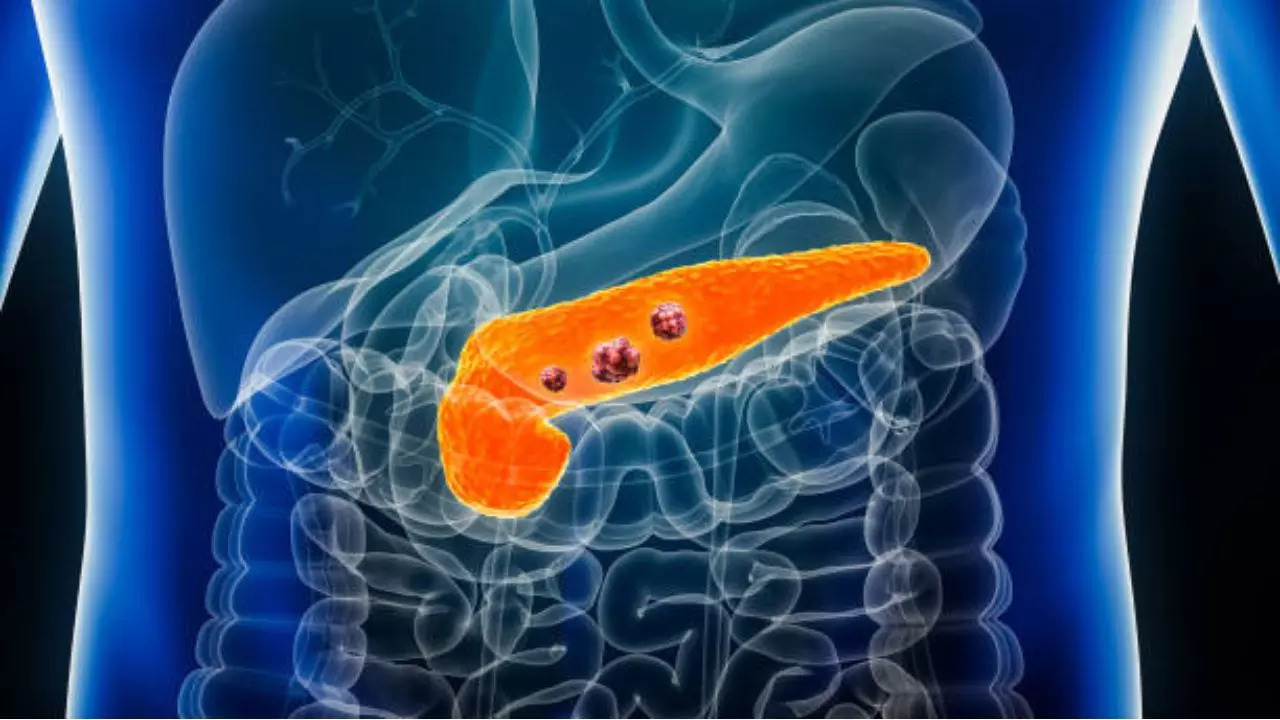New research on pancreatic cancer focuses on targeted detection of specific antibodies in blood samples
An innovative technique has been established that could lead to a more accurate and reliable diagnosis of pancreatic cancer, one of the most lethal cancers mainly due to its late detection. According to the study, published in the journal Applied ChemistryThis new approach focuses on the specific detection of antibodies in blood samples.
Researchers say current markers used in early detection tests are often too ambiguous and lack sensitivity. The technology relies on the specific identification of antibodies present in blood samples.
The research
The scientists say they focused on autoantibodies that recognise the tumour-associated form of mucin-1 (TA-MUC1), a glycoprotein found in glandular tissue and present at elevated levels in several tumours, including pancreatic cancer. The glycosylation pattern of TA-MUC1 in tumours differs from its normal form, making it a key indicator of the disease.
To detect these autoantibodies, the researchers also designed a series of synthetic glycopeptides that mimic segments of TA-MUC1, introducing specific modifications to increase the likelihood of identifying subgroups associated with pancreatic cancer. These synthetic antigens were then immobilized on gold nanoparticles, creating probes suitable for a serological assay.
The team says some of the nanoparticle probes have demonstrated a clear ability to distinguish between samples from cancer patients and healthy individuals by detecting tumor-associated autoantibodies.
These specific autoantibodies have demonstrated significantly better accuracy, with higher rates of correct positives or false positives compared to current clinical biomarkers for pancreatic cancer.
What is pancreatic cancer?
According to experts, pancreatic cancer occurs when cells in the pancreas (a gland in the abdomen that produces hormones that control blood sugar levels and enzymes for digestion) mutate and multiply uncontrollably, forming a tumor. Doctors say that most pancreatic cancers begin in the ducts of the pancreas.
While early-stage pancreatic tumors are not detected on imaging tests, many people do not receive a correct diagnosis until the cancer has spread. Experts say pancreatic cancer is also resistant to many common cancer drugs, making it notoriously difficult to treat.
Currently, much research focuses on early detection through genetic testing and new imaging methods.
Statistics indicate that pancreatic cancer accounts for approximately 3 percent of all cancers in the United States. It is the tenth most common cancer in men and the eighth most common cancer in women.
Signs and symptoms of pancreatic cancer
Doctors say there are no signs of pancreatic cancer that can diagnose this potentially fatal disease. However, symptoms appear once the tumor begins to affect other organs in the digestive system. Some symptoms include:
- Jaundice
- Dark urine
- Light colored stool
- Upper abdominal pain
- Pain in the middle of the back
- Fatigue
- Itchy skin
- Gas or bloating
- Lack of appetite
- Blood clots
- Weight loss
- Onset of diabetes
What causes pancreatic cancer?
Doctors don’t know exactly what causes pancreatic cancer, but there are some risk factors, including:
- Smoking
- Obesity and weight gain
- Diabetes, especially type 2 diabetes
- Exposure to certain chemicals, such as pesticides and petrochemicals.
- Chronic pancreatitis, which causes permanent inflammation of the pancreas.
- Hereditary syndromes with changes or mutations in genes, such as BRCA1 either BRCA2 genes transmitted from biological parents to children
Disclaimer:
The information contained in this post is for general information purposes only. We make no representations or warranties of any kind, express or implied, about the completeness, accuracy, reliability, suitability or availability with respect to the website or the information, products, services, or related graphics contained on the post for any purpose.
We respect the intellectual property rights of content creators. If you are the owner of any material featured on our website and have concerns about its use, please contact us. We are committed to addressing any copyright issues promptly and will remove any material within 2 days of receiving a request from the rightful owner.

